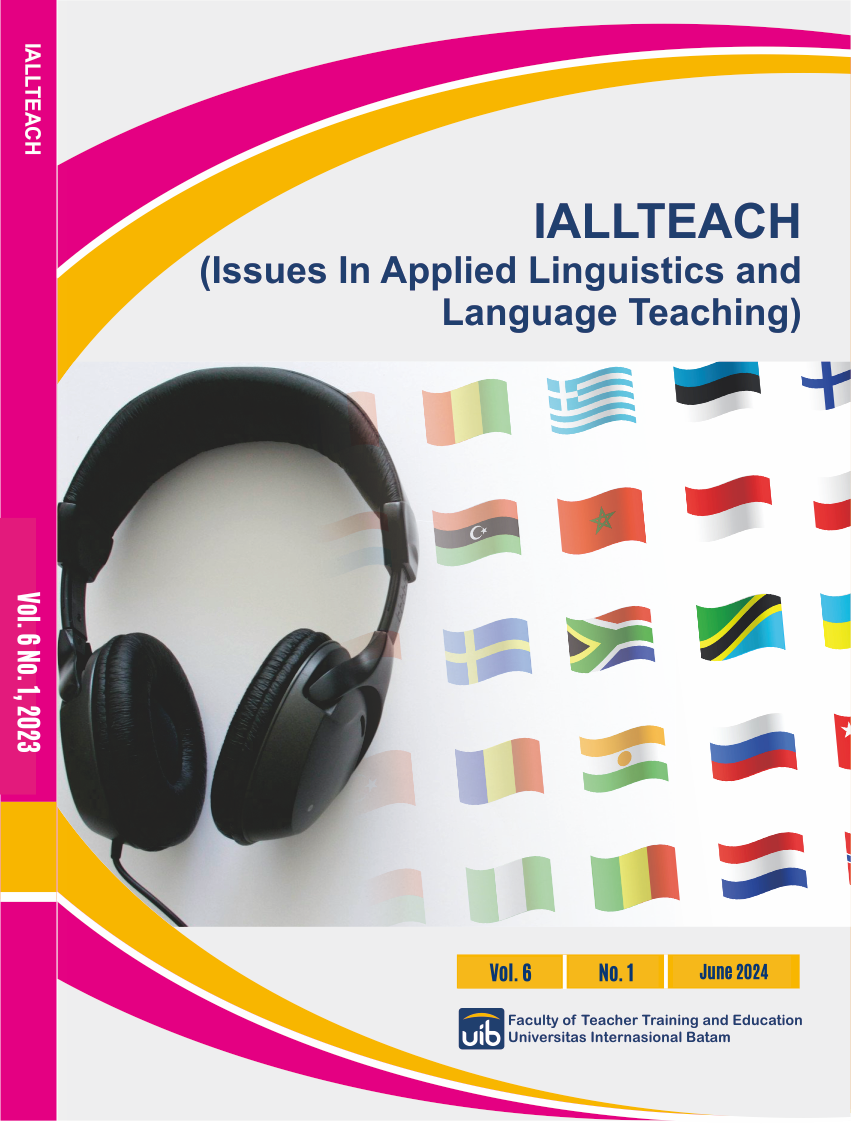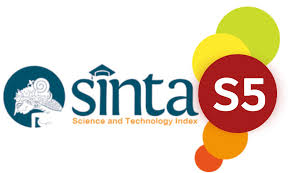Digital Writing Assessment through Padlet for grade XII IPA 4 students in SMA 4 Batam
DOI:
https://doi.org/10.37253/iallteach.v6i1.9313Keywords:
igital writing assessment, Text caption writing, Education, Padlet, Technology Integration in education, and EfficiacyAbstract
This article delves into the transformative impact of digital writing assessment on the academic landscape, specifically targeting Grade 12 IPA students at SMA 4 Batam. In doing so, the subject was text caption writing as well as to find out their perceptions of using Padlet for learning text caption writing. It consisted of 42 students who were in grade 12.
In an era dominated by technology, integrating digital tools in education has become imperative. Our study focuses on the efficiacy and adaptability of digital writing assessments to enhance the writing skills of high school students.
We explore the multifaceted dimensions of digital assessment tools, examining their ability to provide timely feedback, foster collaborative learning environments, and cater to diverse learning styles. The research methodology involves a comprehensive analysis of student performance data, teacher perspectives, and the overall impact on the quality of written expression. Furthermore, we aim to provide valuable insights for eg,,,ducators, administrators, and policymakers seeking innovative approaches to elevate writing proficiency in the digital age.
Based on the pre- and post-questionnaires and interviews conducted, our study aims to address the following research questions:
- How do students interpret and interact with various digital writing evaluation components
- How are digital writing evaluations implemented differently and what are the consequences on various linguistic backgrounds, ability levels, and demographic groups?
- What kind of professional development and technology assistance are required for teachers to use digital writing assessment tools effectively?
Downloads
References
Gadeyne, N., Verbruggen, M., Delanoeije, J., & De Cooman, R. (2018). All wired, all tired? Work-related ICT-use outside work hours and work-to-home conflict: The role of integration preference, integration norms and work demands. Journal of Vocational Behavior, 107, 86–99.
Li, L., & Wang, X. (2020). Technostress inhibitors and creators and their impacts on university teachers’ work performance in higher education. Cognition, Technology & Work, 1–16.
Ottestad, G., & Gudmundsdottir, G. B. (2018). ICT policy in primary and secondary education in Europe. In J. Voogt, G. Knezek, R. Christensen, & K.-W. Lai (Eds.), Handbook of information technology in primary and secondary education. Cham: Springer.
Park, Y., Liu, Y., & Headrick, L. (2018). Improving lives of teachers: Staying connected to work, work-family boundary control, and strain. Academy of Management Proceedings, 2018(1), 134–141.
Scherer, R., & Teo, T. (2019). Editorial to the special section—technology acceptance models: What we know and what we (still) do not know. British Journal of Educational Technology, 50(5), 2387–2393.
Xie, J., Ma, H., Zhou, Z. E., & Tang, H. (2018). Work-related use of information and communication technologies after hours (W_ICTs) and emotional exhaustion: A mediated moderation model. Computers in Human Behavior, 79, 94–104.
Towers, A.; Towers, N. Re-evaluating the postgraduate students’ course selection decision making process in the digital era. Stud. High. Educ. 2018, 45, 1133–1148.
Park, K.B. Citizenship in the Digital Network Era. Soc. Stud. Educ. 2019, 58, 1–11.
Kali, Y.; Sagy, O.; Benichou, M.; Atias, O.; Levin-Peled, R. Teaching expertise reconsidered: The Technology, Pedagogy, Content and Space (TPeCS) knowledge framework. Br. J. Educ. Technol. 2019, 50, 2162–2177
Lin, L.; Shadiev, R.; Hwang, W.-Y.; Shen, S. From knowledge and skills to digital works: An application of design thinking in the information technology course. Think. Ski. Creat. 2020, 36, 100646.
Petko, D.; Prasse, D.; Cantieni, A. The Interplay of School Readiness and Teacher Readiness for Educational Technology Integration: A Structural Equation Model. Comput. Sch. 2018, 35, 1–18.
Bergdahl, N.; Fors, U.; Hernvall, P.; Knutsson, O. The Use of Learning Technologies and Student Engagement in Learning Activities. Nord. J. Digit. Lit. 2018, 13, 113–130.
Al-Rahmi, W.M.; Alzahrani, A.I.; Yahaya, N.; Alalwan, N.; Kamin, Y.B. Digital communication: Information and communication technology (ICT) usage for education sustainability. Sustainability 2020, 12, 5052.
Ali, H.; Gueyié, J.P.; Okou, C. Assessing the impact of information and communication technologies on the performance of microfinance institutions in Niger. J. Small Bus. Entrep. 2021, 33, 71–91.
Dave, D. An analytical study of the role of ICT in Higher Education. J. Glob. Econ. 2019, 15, 56–61.




.png)






